Kathy Luck, Founder of Thingealogy, Helps People Share the Stories of the Things They Value
This post is part of our “Startup Stories” series – where we feature select Designli clients with the goal of highlighting their products, their...
6 min read
Written by Laura MacPherson, May 6, 2019
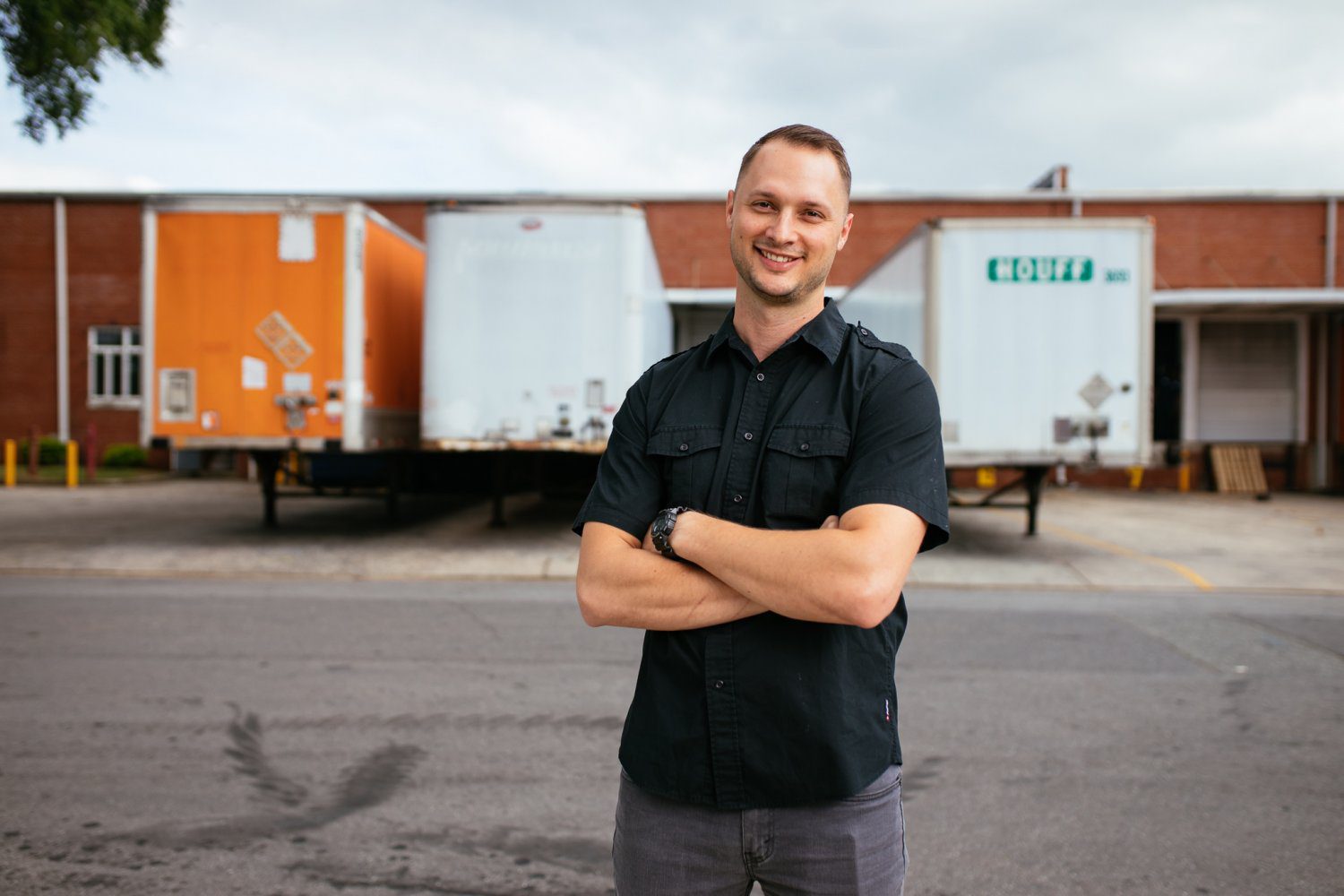
This post is part of our “Startup Stories” series – where we feature select Designli clients with the goal of highlighting their products, their inspiration, and what has motivated them to tackle the world of building a digital startup.
Lance Theobald, co-founder of SecūrSpace, was a veteran in the transportation industry when he noticed a recurring problem. Truck operators and others in the industry didn’t have a convenient option to secure short-term storage when they needed it. Simultaneously, he knew owners of lockable industrial lots that were underutilized who wanted to get more out of their assets. The idea for SecūrSpace was born. We chatted with Lance to learn how he got started, the challenges he faced, and the advice he has to share with other founders.
SecūrSpace is a marketplace that enables on-demand access to industrial real estate across the country. Our customers come to us when they need a pay-by-the-glass solution for overnight truck parking or a secure drop yard for equipment or trailers for a short period of time. Our partners utilize us to monetize any space in their facilities that’s not currently being used. You can think of us a little bit like an Airbnb for industrial real estate. It’s very similar in that we’re a marketplace that puts an underutilized asset to work.
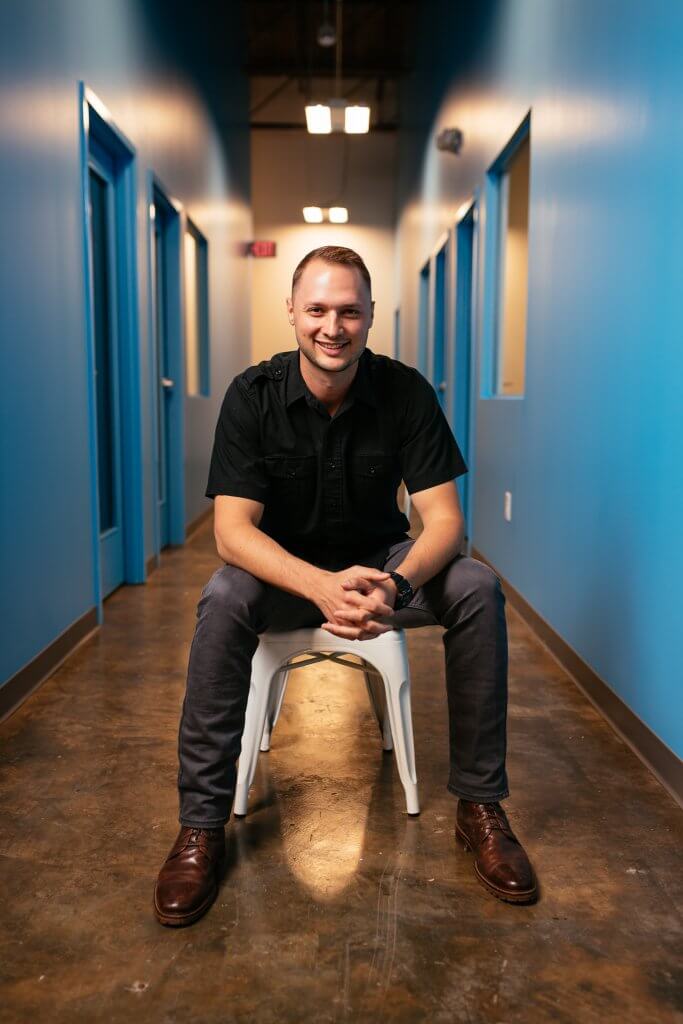
I spent about four years of working in the transportation industry, primarily in sales roles. During that time, I spoke with hundreds of different companies including importers, exporters, forwarders, and trucking companies. I realized that there was a need for on-demand access or short-term access to industrial properties in places like Los Angeles, Chicago, and other major metropolitan areas across the country.
The traditional industrial lease is a multi-year instrument. It’s very complex, and it’s typically expensive to get into if you’re a small company. It doesn’t make sense if you have a short-term project need. So, I put the pieces together and realized there was an opportunity for an Airbnb-style marketplace.
Early on in the journey I hooked up with Ben Satterlee, one of my co-founders in Los Angeles. He has truck parking and container storage yards that he operates as his primary business. The early aim was to replicate his business model at other facilities across the country. But, instead of actually going in and setting up security guards, leasing our own facilities, and everything that would be involved in running our own locations, we wanted to go to those properties that already had all the elements in place — say, an operating truck yard. Our pitch would be, “Look, you’re not utilizing all of your capacity. You can list that extra capacity and turn this cost center into a stream of revenue.”
It grew from there. Cory Bailey, our president and the third co-founder of the company, joined right at the beginning. Over the last two years, Cory, Ben, and I have worked to refine the model, build up the marketplace, and attract interest.
I was at a crossroads in my career and I had just taken a promotion with my former company. It was a great company and good job, but I really wanted to step out to do something on my own, and I’d been looking for an opportunity. My wife and I had just moved back to Charlotte from Los Angeles, where we’d lived for a number of years, and I realized that Charlotte was a great place to start a business. On a personal level, the cost of living is drastically lower than Los Angeles, and that enabled me to take a risk.
Our president, Cory, was getting his MBA at the Notre Dame Mendoza College of Business, so he was surrounded by a very smart group of classmates and professors that we leaned on heavily as resources. We entered and won a business plan competition early on and were able to use those resources to validate a lot of our early assumptions.
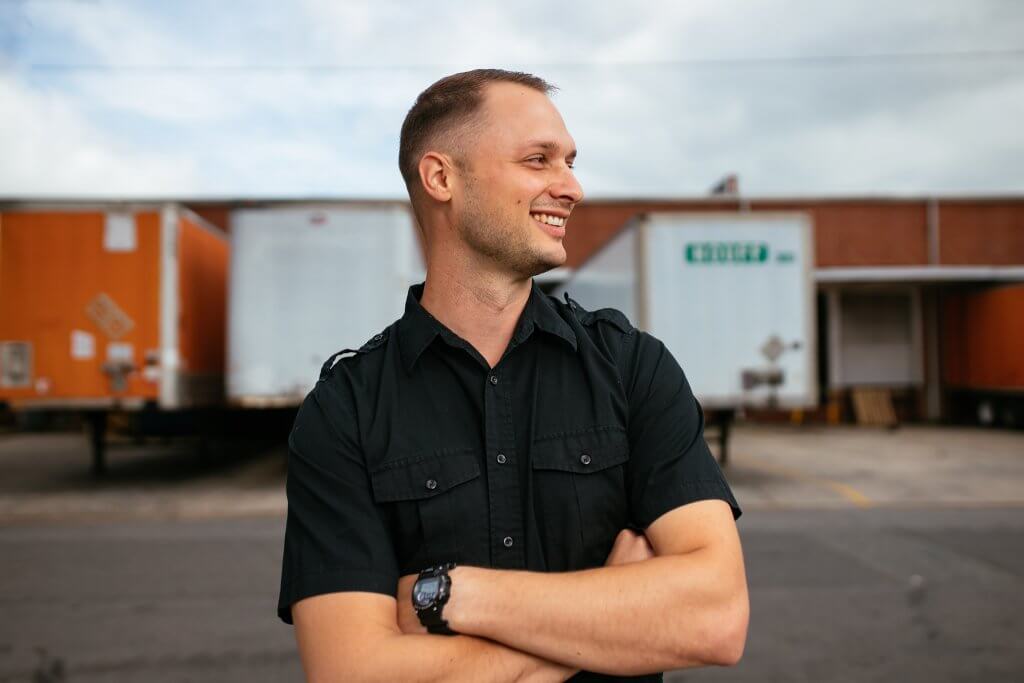
It’s kind of funny that even after having been in business ourselves, we started with a “build it and they will come” mentality. Unfortunately or fortunately, depending on how you look at it, that wasn’t the case. We had to take a ton of feedback from various partners and customers and incorporate that into the elements of our product.
We have a very robust backend, for example. A new partner location, say a business that’s never been involved in this type of operation, now has complete control and easy-to-use operational tools to manage that business. And that’s not something we originally conceived of or thought we needed to do. Now we have yards transacting hundreds of pieces of equipment per day, utilizing our tools to manage 100% of that. So much has changed along the way as we’ve listened to what our customers and partners need.
As I look back through my history, one of my favorite quotes is from a speech by Theodore Roosevelt. I read a book right before leaving my former employer called The Rise of Theodore Roosevelt, which included the speech with this quote:
“It is not the critic who counts; not the man who points out how the strong man stumbles, or where the doer of deeds could have done them better. The credit belongs to the man who is actually in the arena, whose face is marred by dust and sweat and blood; who strives valiantly; who errs, who comes short again and again, because there is no effort without error and shortcoming; but who does actually strive to do the deeds; who knows great enthusiasms, the great devotions; who spends himself in a worthy cause; who at the best knows in the end the triumph of high achievement, and who at the worst, if he fails, at least fails while daring greatly, so that his place shall never be with those cold and timid souls who neither know victory nor defeat.”
Roosevelt was a guy that just took action. He always moved forward and that’s been an inspiration to me: default towards doing something. Sometimes you do the right thing and sometimes you do the wrong thing, but take action when an opportunity presents itself.
My wife is an inspiration as well. We have three kids who are ages three and under. If I watch the kids for more than three hours, I’m exhausted, but she does it every day. I travel a lot and I don’t know how she holds it together, but she does it well.
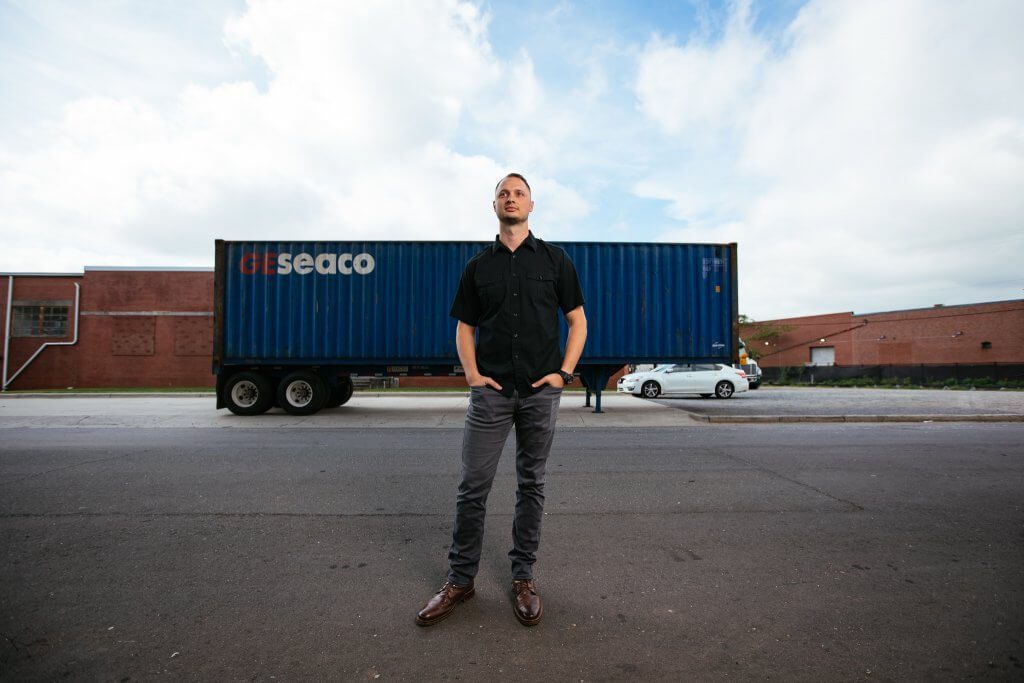
One of the most valuable books I’ve read is called The Lean Startup by Eric Ries. I’ve spent a lot of time talking through the ideas in that book with my co-founders and with others in the business world. The advice is that you need to get to validation, or even a no, as quickly and as cheaply as possible. We avoided some costly mistakes following this advice. It allowed us to validate that the idea for our company was sound early on.
There’s typically an enormous amount of time and capital wasted chasing things that are dead-on-arrival. That book gave us a framework to see there was a shorter pathway to figuring out if our idea had promise. As founders, we’re always convinced that our ideas are brilliant, but you never know until you get outside impartial feedback. The best way to do that is to push something out there.
I think the biggest challenge for me personally has been the highs and lows that define entrepreneurship. It’s hard for those not in entrepreneurship to understand just how wonderful a win can be, and how downright depressing a loss can be. Your business is your baby. It’s your idea that you’re putting your blood, sweat, and tears into.
But, you have to understand that there are going to be good days and bad days. You learn how to stay the course and not get too excited (in a good way or in a bad way) about anything.
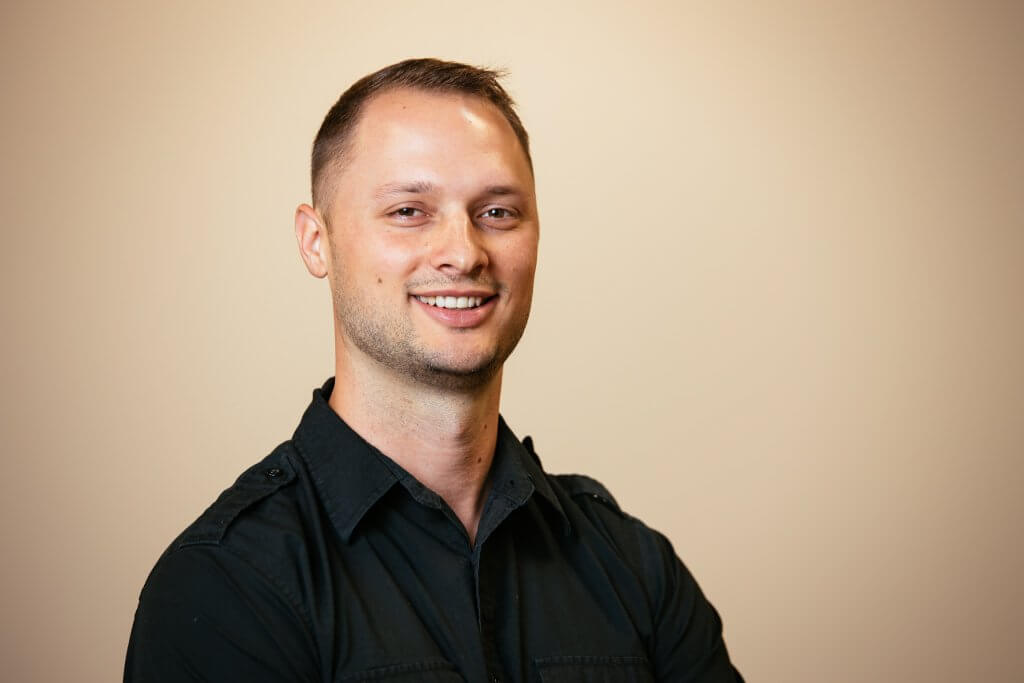
I would say, if you have an idea, prove it or disprove it as fast and as cheaply as possible. I think a lot of entrepreneurs, especially in the tech world, spend an enormous amount of time and money building things without getting the validation they need. In the early phase of SecūrSpace, we had a very simplistic website with limited capability, but we were able to push through our first couple hundred thousand dollars in sales revenue in a very short period of time so we knew we were on to something.
Beta users are important in order to get feedback and to improve upon the business plan, but it’s so important to get out there to see if you’re actually providing value to people. And, if they value what you are doing enough to pay you for it.
This has been a team effort. I might have conceived of the original idea, but my co-founders and early employees have been indispensable. It has been a collective effort across the board to get us to where we are today. We continue to innovate, providing additional value and an easier path to that value, and it’s a whole team effort.
Looking to follow Lance and the SecūrSpace on their journey? Visit https://secur.space/
Ready to chat with the Designli team about bringing your own app idea to life? Contact us here.
Subscribe to our newsletter.
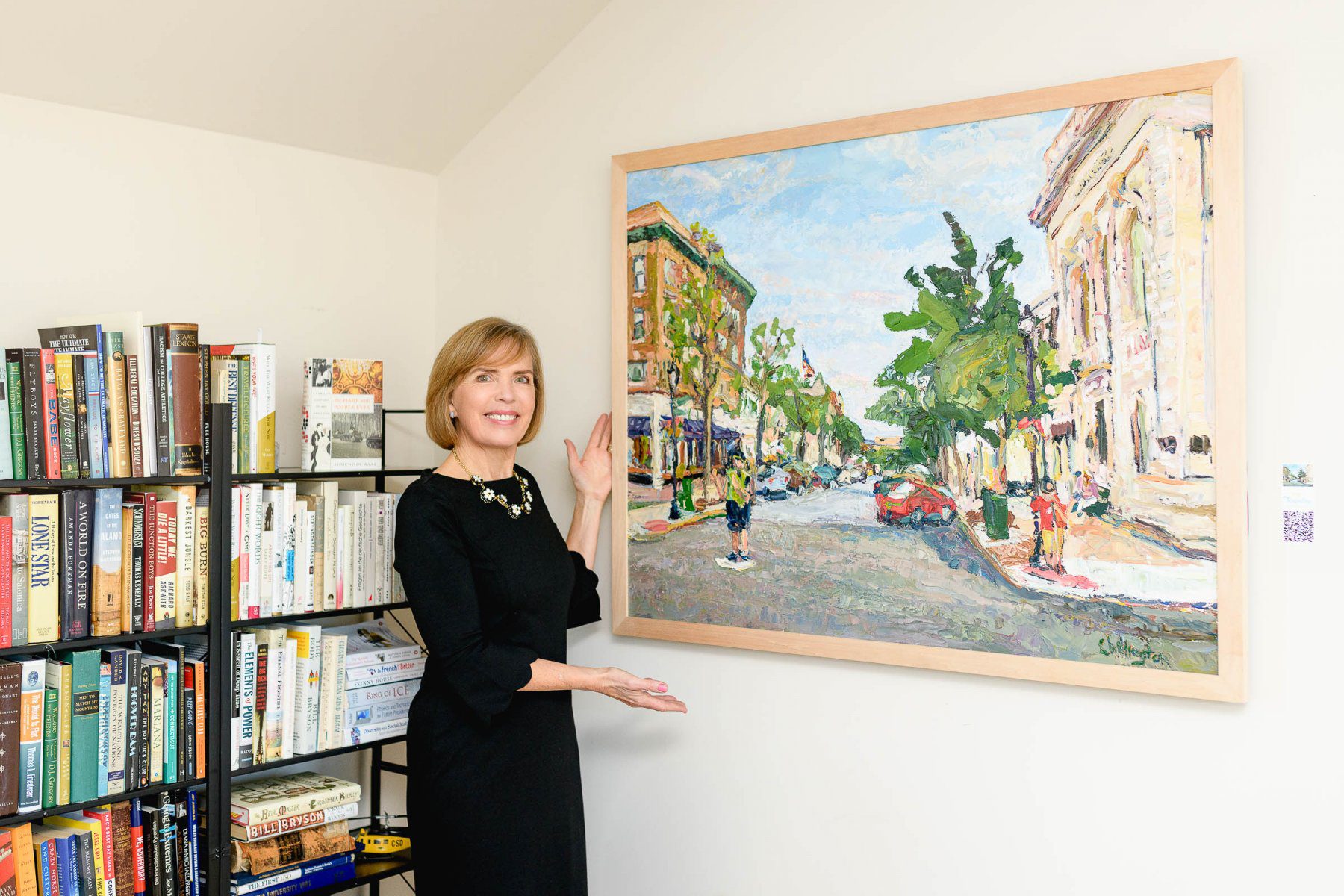
This post is part of our “Startup Stories” series – where we feature select Designli clients with the goal of highlighting their products, their...
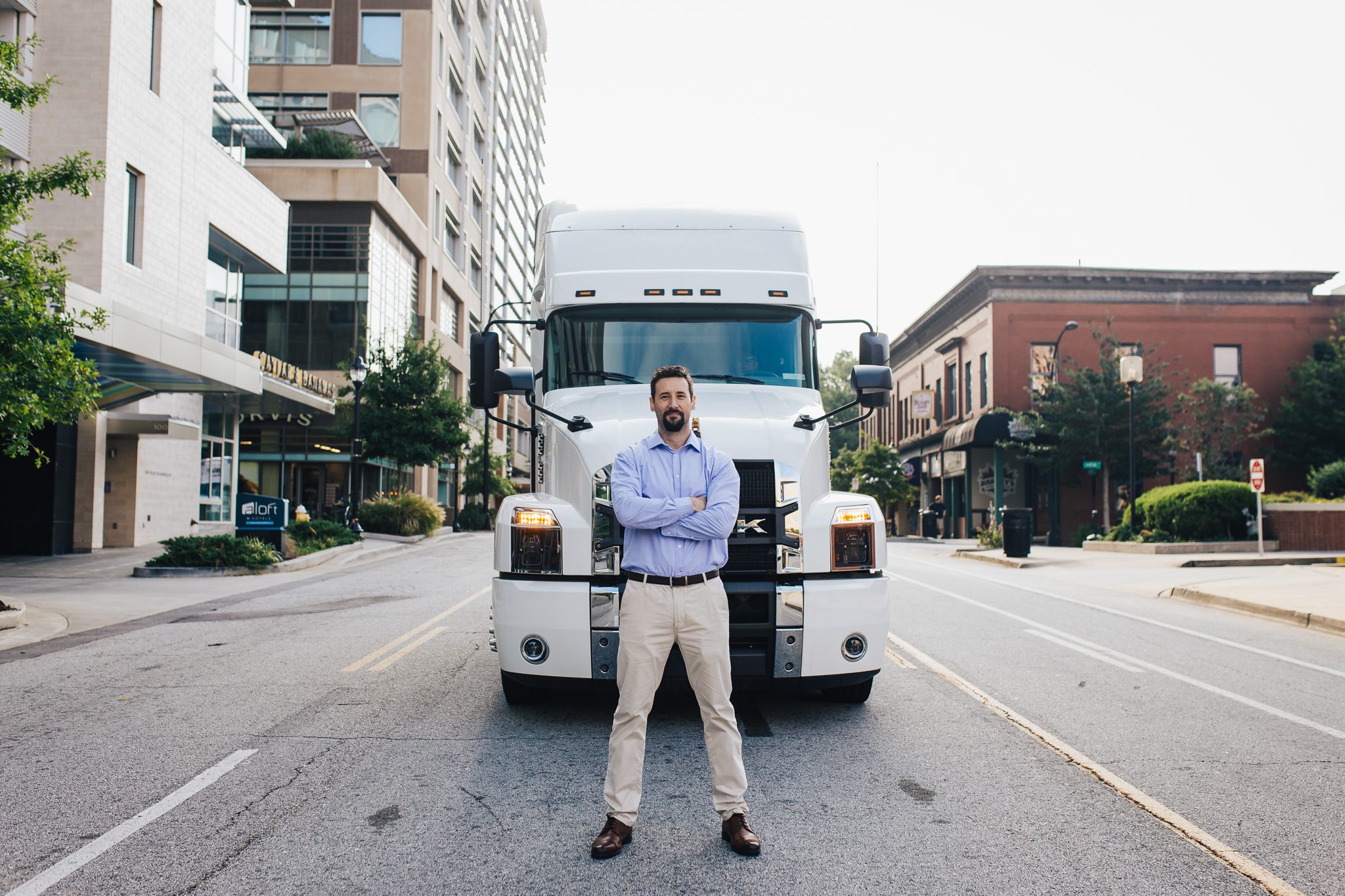
This post is part of our “Startup Stories” series – where we feature select Designli clients with the goal of highlighting their products, their...
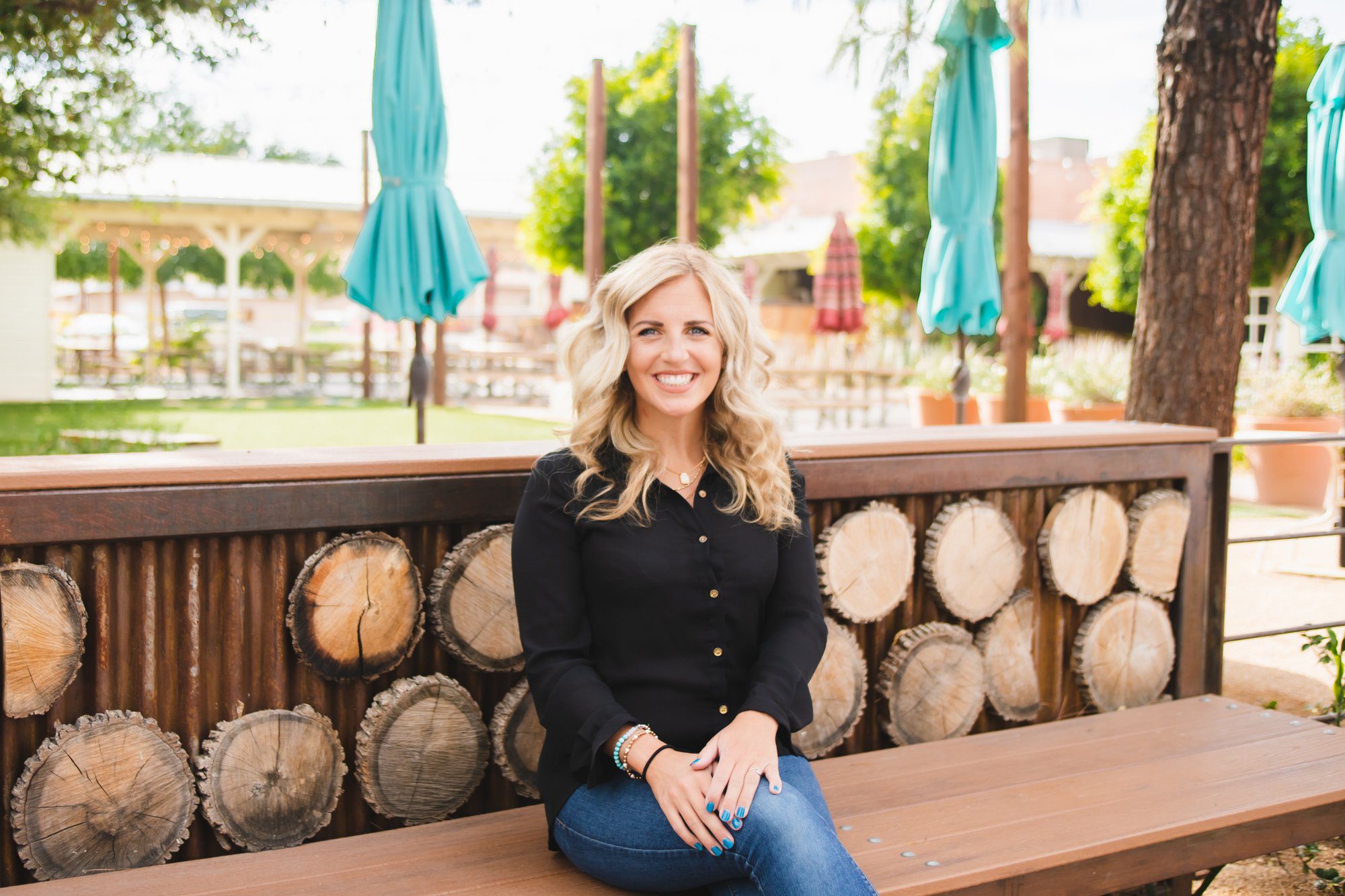
This post is part of our “Startup Stories” series – where we feature select Designli clients with the goal of highlighting their products, their...
Post
Share